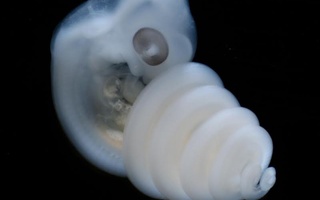Over the next few months, the University’s ethics review board will consider what should be one of the easiest decisions they will make: Two teams of researchers affiliated with the Harvard Stem Cell Institute have requested permission to clone human cells to conduct stem cell research. This is a request that the University, and indeed humanity, can not afford to see denied.
Stem cell research using existing embryos is already an extremely contentious issue nationally. Linking stem cell research to abortion, President George W. Bush has banned federal funds from supporting the production of more usable stem cell lines—the collections of undifferentiated cells that are so valuable to stem cell researchers. This frustratingly provincial attitude to what could be the next great tool in modern medicine has frozen this avenue of scientific inquiry within the United States.
Harvard, however, has begun to defend stem cell research against the frustrating restrictions Bush has placed on it. Researchers at the institute have already created new, viable stem cell lines using private money. But cloning human embryos for the purpose of stem cell research is even more controversial than just producing more stem cell lines from existing embryos. Cloning conjures up images of Dolly, the cloned sheep, and seems to raise a cornucopia of ethical dilemmas.
Yet what Harvard’s stem cell scientists are asking to do is not as ethically daunting as popular imagination might make it. Harvard has already banned reproductive cloning—the sort of thing that results in Dolly. That is not what the Stem Cell Institute has in mind. As Executive Director Charles G. Jennings told The Crimson, “We have no idea whether [reproductive cloning] would work in humans—it would be grossly irresponsible to try, and we’re completely opposed to it.” Rather, institute researchers want to extract stem cell lines from the early stages of embryonic growth—not implant the embryo back into a woman to birth a child. We hope that the University’s ethic board will see the distinction between potentially lifesaving stem cell research on diseases such as Parkinson’s, diabetes or Alzheimers and the type of reproductive cloning that produced Dolly.
If Harvard is to continue to lead the way in stem cell research in the United States, it must allow its researchers to do the kind of work that continues apace in other countries. A South Korean lab has already extracted new stem cell lines from a cloned embryo. A lab in Britain plans to do the same soon. America could fall very far behind indeed if even the private organizations that can afford to conduct stem cell research fall short.
Everyday that this research is delayed is a day that patients of Parkinson’s, diabetes, Alzheimer’s and other diseases needlessly suffer due to misplaced moral misgivings. We think that the choice facing the ethics boards is easy; we hope that it is easy enough for the committees to get it right.
Read more in Opinion
The State of the BlogosphereRecommended Articles
-
Stem Cells and Public PolicyOn Oct. 13, the first human embryos created through cloning were produced. Though the embryos died even before having divided
-
Student Aims For Better Quad Cell ServiceAfter living in Cabot for only a few weeks, Allegra J.S. Lichauco ’08 is taking on one perennial source of
-
Hey, Professor!Hey, Associate Professor of Obstetrics, Gynecology, and Reproductive Biology Karin Michels! A study just came out saying that obesity runs
-
Memory May Influence Motivation, Research SuggestsMotivation in rats is influenced not only by their most recent experiences, but also by a series of recent experiences, according to a recent study by a team of Harvard biology researchers.
-
 Harvard Athletes, Coaches Run Boston Marathon
Harvard Athletes, Coaches Run Boston Marathon -
 Med School Study Explores Genitalia Formation
Med School Study Explores Genitalia Formation













